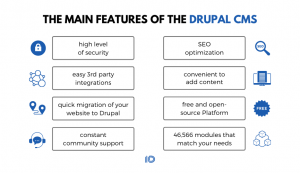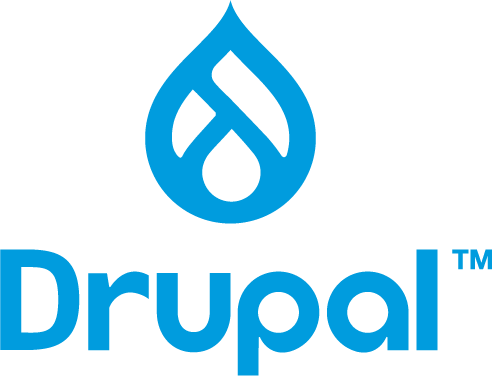Drupal is a popular open-source content management system (CMS) used for creating and managing websites. It was initially released in 2001 by Dries Buytaert and has since then grown to become one of the most widely used CMSs in the world. In this article, we’ll discuss what Drupal is, its features, and why it’s a popular choice for creating websites.
What is Drupal CMS?
Drupal is a free and open-source CMS written in PHP. It allows users to create, manage and publish content on their website with ease. Drupal is a highly flexible CMS that can be customized to suit any type of website, from personal blogs to large corporate sites. It is known for its scalability and security, which makes it an excellent choice for businesses and organizations of all sizes.
Drupal’s Features
Drupal is known for its robust set of features that make it an ideal choice for building complex websites. Some of its notable features include:

- Flexibility: Drupal’s modular architecture allows developers to easily create custom features and functionalities.
- User Management: Drupal has a sophisticated user management system that allows administrators to manage multiple users with different levels of access.
- Content Management: Drupal’s content management system is highly customizable and allows for the creation of a wide range of content types, including blogs, articles, and multimedia content.
- Search Engine Optimization (SEO): Drupal has built-in SEO tools that allow for the optimization of content for search engines.
- Mobile Responsiveness: Drupal’s responsive design ensures that websites built on the platform are optimized for mobile devices.
- Security: Drupal is known for its strong security features, including access control and user authentication.
Why Choose Drupal?
There are several reasons why Drupal is a popular choice for creating websites. Here are some of them:
- Flexibility: Drupal’s modular architecture allows for the creation of custom features and functionalities, making it a highly flexible CMS.
- Scalability: Drupal can handle websites of all sizes, from personal blogs to large corporate sites.
- Community Support: Drupal has a large community of developers and users who contribute to the development of the CMS, making it a reliable and constantly evolving platform.
- Security: Drupal is known for its strong security features, which make it an ideal choice for businesses and organizations that require secure websites.
- Customization: Drupal’s highly customizable nature allows for the creation of unique websites that stand out from the competition.
Advantages and Disadvantages of Drupal CMS
Advantages of Drupal CMS:
- Flexibility: Drupal is highly flexible, which means that it can be customized to suit the needs of any website. Its modular architecture allows developers to create custom features and functionalities easily.
- Community Support: Drupal has a large and active community of developers and users who contribute to the development of the CMS. This community support ensures that Drupal is constantly evolving and improving.
- Security: Drupal is known for its strong security features, making it an ideal choice for businesses and organizations that require secure websites.
- Scalability: Drupal can handle websites of all sizes, from personal blogs to large corporate sites.
- Customization: Drupal’s highly customizable nature allows for the creation of unique websites that stand out from the competition.
- Multilingual Support: Drupal has built-in support for multiple languages, making it an ideal choice for creating websites that cater to a global audience.
Disadvantages of Drupal CMS:
- Complexity: Drupal is a complex CMS that can be challenging for beginners to learn. Its advanced features and functionalities can make it difficult to use for those who are not experienced with web development.
- Cost: While Drupal itself is free, there may be costs associated with hiring developers or purchasing themes and plugins to customize your website.
- Maintenance: Like all CMSs, Drupal requires regular maintenance and updates to ensure that it remains secure and functional. This can be time-consuming and may require technical expertise.
- Performance: Drupal can be resource-intensive, which means that it may require a powerful server or hosting plan to run smoothly.
- User Interface: Some users may find Drupal’s user interface to be less intuitive than other CMSs, making it challenging to navigate and use effectively.
Conclusion
In conclusion, Drupal is a powerful and flexible CMS that is used by businesses and organizations of all sizes. Its robust set of features and strong security make it an ideal choice for creating complex websites. With its large community of developers and users, Drupal is constantly evolving and improving, ensuring that it remains a top choice for website creation.

